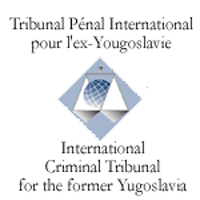ICTY Remembers: The Srebrenica Genocide 1995-2015.
 Those who devise and implement genocide seek to deprive humanity of the manifold richness its nationalities, races, ethnicities and religions provide. This is a crime against all humankind, its harm being felt not only by the group targeted for destruction, but by all of humanity.”
Those who devise and implement genocide seek to deprive humanity of the manifold richness its nationalities, races, ethnicities and religions provide. This is a crime against all humankind, its harm being felt not only by the group targeted for destruction, but by all of humanity.”
Appeal Judgement in the case of Radislav Krstić, 19 Apr. 2004
Srebrenica is the name of a town synonymous with the conflict that devastated the former Yugoslavia in the 1990s. It is a name that conjures up images of families being torn apart, of people forced onto buses with an unknown destination, of terrified, blindfolded men being led to their deaths, killed methodically solely on the basis of their identity; and of the grieving mothers, wives, sisters and daughters left behind.
But alongside the deep and lasting injury inflicted on the Bosnian Muslims of Srebrenica, the town is now emblematic of the resolve of the international community to call the killings committed there by their proper name: genocide. Srebrenica is a solemn warning sounded by the Tribunal that those who commit this inhumane crime will not escape justice.
The ICTY was the first international criminal tribunal to enter convictions for genocide in Europe. In April 2004, in the case of Radislav Krstić, the Appeals Chamber determined that genocide was committed in Srebrenica in 1995, through the execution of more than 7,000 Bosnian Muslim men and boys following the take-over of the town by Bosnian Serb forces. Several other ICTY cases relating to the Srebrenica events have ensured that the genocide has been well documented and, in the words of ICTY President Theodor Meron, “consigned to infamy”.
Many of the over 1,000 testimonies before the ICTY that involved the Srebrenica events came from survivors who found the courage to come forward and testify. As the 20th anniversary of those events approaches, the ICTY remembers and pays tribute to those without whom there could have been no justice. The Tribunal salutes their legacy for the former Yugoslavia and for all humanity.







